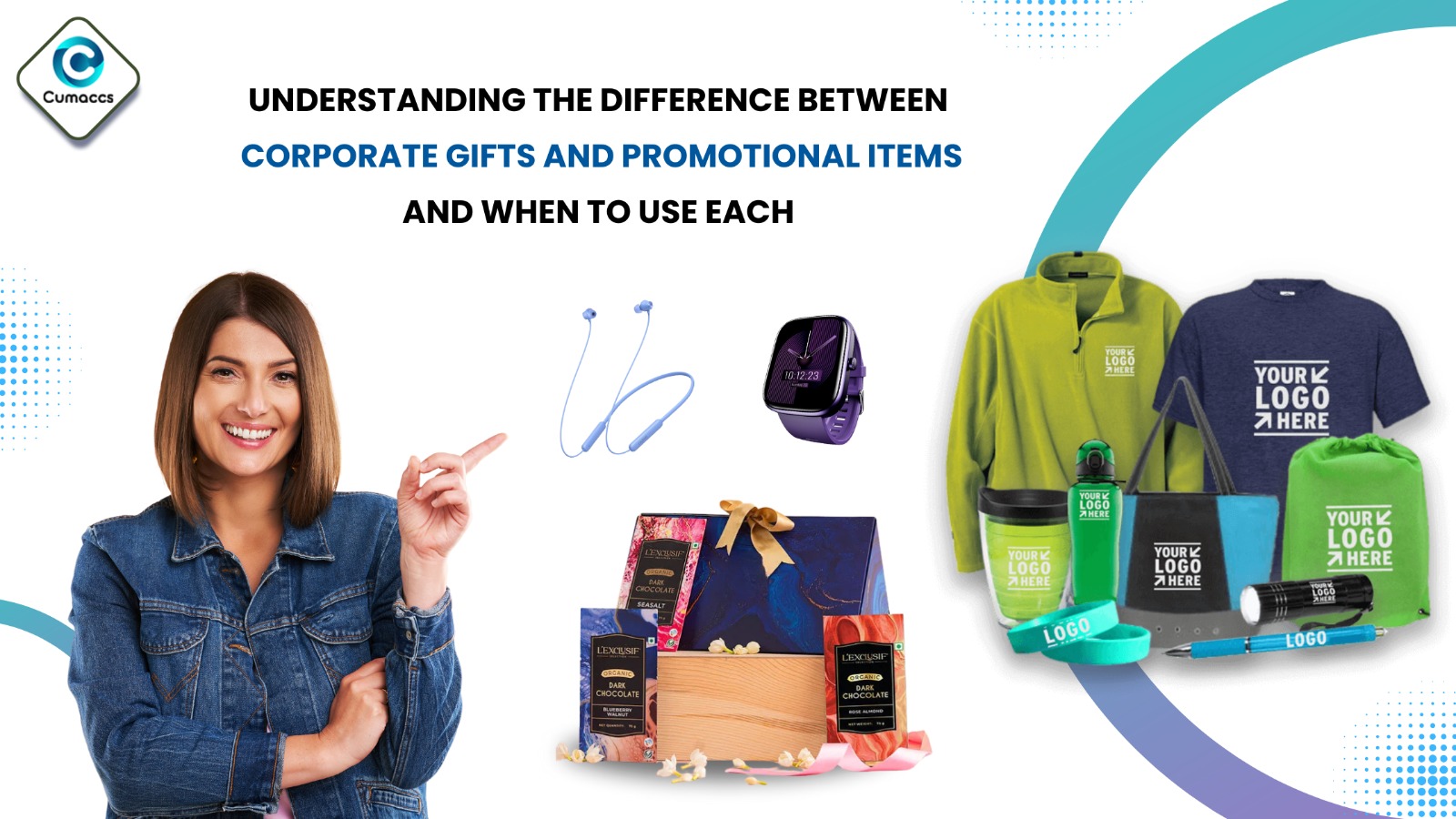The terms “corporate gifts” and “promotional items” are frequently used interchangeably in the field of business marketing and branding. However, there is a distinction between the two, and knowing it is critical for smart brand marketing and the development of lasting partnerships.
Corporate Gifts: Building Relationships and Appreciation
Corporate gifts are generally given to important clients, workers, or partners as tangible displays of appreciation and goodwill. They are intended to enhance connections, inspire loyalty, and express thanks. Personalization of corporate presents, reflecting the recipient’s interests or contributions, makes them a more meaningful gesture.
Corporate Gifts Have the Following Characteristics:
- Personalized: Designed with the recipient’s interests or interests in mind.
- High-quality: Reflecting the status and esteem of the company
- Thoughtful: Expressing sincere gratitude and respect
- Memorable: Leaving a pleasant impression that lasts.
Promotional Products: Raising Awareness of the Brand and Recall
Promotional products, on the other hand, are typically intended to market a brand or product to a larger audience. They are often less expensive and distributed more broadly than corporate gifts, to increase brand visibility and remember. Promotional items can range from pens and mugs to t-shirts and tote bags and are frequently imprinted with the company’s logo or branding.
Key Features of Promotional Items:
- Branded: Displaying the company’s emblem or branding prominently.
- Reasonably priced: Designed for widespread distribution
- Useful: Adding value to the recipient’s life.
- Visitable: Increasing brand awareness and memory.
Choosing the Best Strategy for Your Company
The utilization of corporate gifts or promotional products is determined by your marketing objectives and target demographic. If you want to improve ties with key clients, for example, tailored corporate gifts are a better option. Promotional items, on the other hand, are more cost-effective and widely distributed if you want to raise brand awareness among a larger audience.
When Should You Use Corporate Gifts?
Corporate gifts are best used when you want to:
- Thank a valuable customer for their business.
- Recognize an employee’s exceptional performance.
- Improve connections with key partners or stakeholders.
- Commemorate a firm milestone or accomplishment.
- Develop long-term ties with prospective clients or partners.
When Should You Use Promotional Items?
Promotional goods work best when you wish to:
- Increase brand presence and awareness
- Boost brand recall and recognition.
- Promote participation at conferences or trade exhibitions to promote the launch of a particular service or good.
- Increase brand loyalty among current customers.
When choosing business presents, keep in mind the person receiving them, the moment in time, and what type of message you want to send.
- Personalization: Personalized presents show attention to detail, making them more memorable. Consider etching a name, the initials, or something of significance on the item.
- Quality: Choose high-quality presents that reflect the ideals and professionalism of your firm. Avoid low-cost things that could devalue your brand.
- Relevance: Gifts should be relevant to the recipient’s desires, preferences, or industry. Items that are generic or irrelevant should be avoided.
- Occasion: Make your present choices based on the occasion. Consider a celebratory present for a client’s achievement or a welcome gift for a new staff.
- Branding: Make sure that all promotional goods have strong and clear branding. To increase brand visibility, use high-quality printing or embroidery.
- Distribution: Distribute promotional materials strategically at events, trade exhibitions, or through targeted campaigns. When determining where to distribute, consider the recipient’s preferences and interests.
- Action Is Needed: Include a clear call to action on promotional goods, encouraging recipients to visit your website, follow you on social media, or take a specific action.
Corporate gifts and advertising products are both effective instruments for promoting a company and establishing relationships. Businesses may make informed decisions about when to employ each type of giving strategy to meet their specific marketing objectives by understanding the differences between the two.





